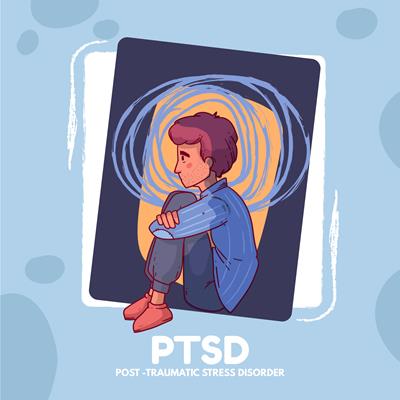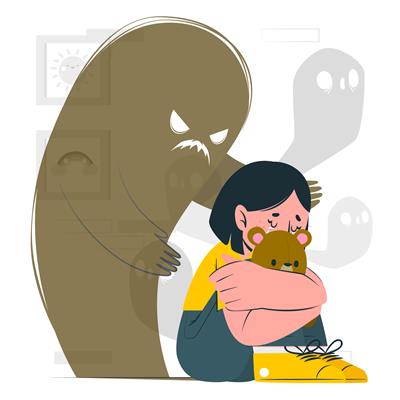Trauma
What is Trauma?
Trauma can be defined as the physical, mental, or emotional reaction to a stressful or shocking event or a sequence of events. These are events that are potentially hazardous or are seen by the individual as threatening and which may tax the person’s coping capacity.
Trauma may be defined as an event that occurs in the life of an individual, such as an accident, natural calamities, physical or sexual abuse, combat, or sudden bereavement.
It is important to understand that people may feel various emotions after a trauma: shock, disbelief, anger, sadness, and anxiety. Such reactions may be temporary, last for a period of time, or even be indefinite.
Trauma can have consequences for the state of a person’s psyche, emotions, and body.
PTSD (Post-Traumatic Stress Disorder)

What is PTSD? PTSD is a particular kind of mental health disorder that may occur in a person who has been through a traumatic event or has witnessed it. It is important to note that PTSD is not diagnosed in every person who has undergone a traumatic event.
Diagnosis: PTSD is defined by certain criteria in the DSM-5, which is the current manual used to diagnose mental disorders. To be diagnosed, the symptoms must persist for more than a month and disable the individual from functioning normally.
Symptoms
There are a total of four types of PTSD symptoms
Intrusive thoughts: intrusive thoughts or images, ideas, or impressions that repeatedly intrude into the individual’s awareness; intrusive recollection; and intrusive reverberations of the trauma in the form of dreams.
Avoidance: Avoiding stimuli that are related to the traumatic event or that trigger thoughts or feelings similar to the ones experienced during the traumatic event.
Negative changes in thinking and mood: The negative cognitions include negative self-images, perceptions of the world as meaningless and hopeless, feelings of isolation, and diminished interest in activities.
Arousal and reactivity cchange irritability, aggressive actions and words, impulsivity, increased arousal, and insomnia.
Treatment: It is often a condition that needs the help of a specialist, and this can be achieved through counselling, which can be CBT, EMDR, or others, or prescription medication or both.

Trauma VS PTSD
Key Differences
Nature: It is imperative to differentiate between Trauma which is the event or experience, and PTSD which is the disorder that may be experienced after such an event or experience.
Occurrence: Not all people who go through various traumatic situations develop PTSD, but, at the same time, PTSD cannot appear without any traumatic events.
Symptoms and Diagnosis: Here, PTSD can be seen as having a specific set of symptoms and specific diagnostic criteria that differentiate it from trauma, which refers to a wide range of disorders and does not have strict diagnostic criteria.
The major distinction between trauma and PTSD can be observed in terms of timeframe and continuing manifestations of the injury. Trauma in this context involves the events that an individual goes through, as well as the hour following the occurrence of a life-threatening or threatened event that the person finds exceedingly intolerable. This response includes a list of symptoms including shock, denial confusion and anxiety which are common immediately after the incident.
When this trauma is not well handled by the mind and the body it manifests as PTSD which is a formal diagnosis of mental illness. This is simply based on signs that persist for over one month and which are marked to cause significant impairment in functioning. It is experienced in the nervous system as flash backs or intrusive memories of the traumatic event together with the fears elicited, which keeps playing in the mind over and over again like a record that has jammed.
We welcome you to reach out to us at info@mindtopsychology.com for any questions or support regarding mental health. Your well-being matters, and we’re here to help.





OK while the brutality of our dirty stuff he actually